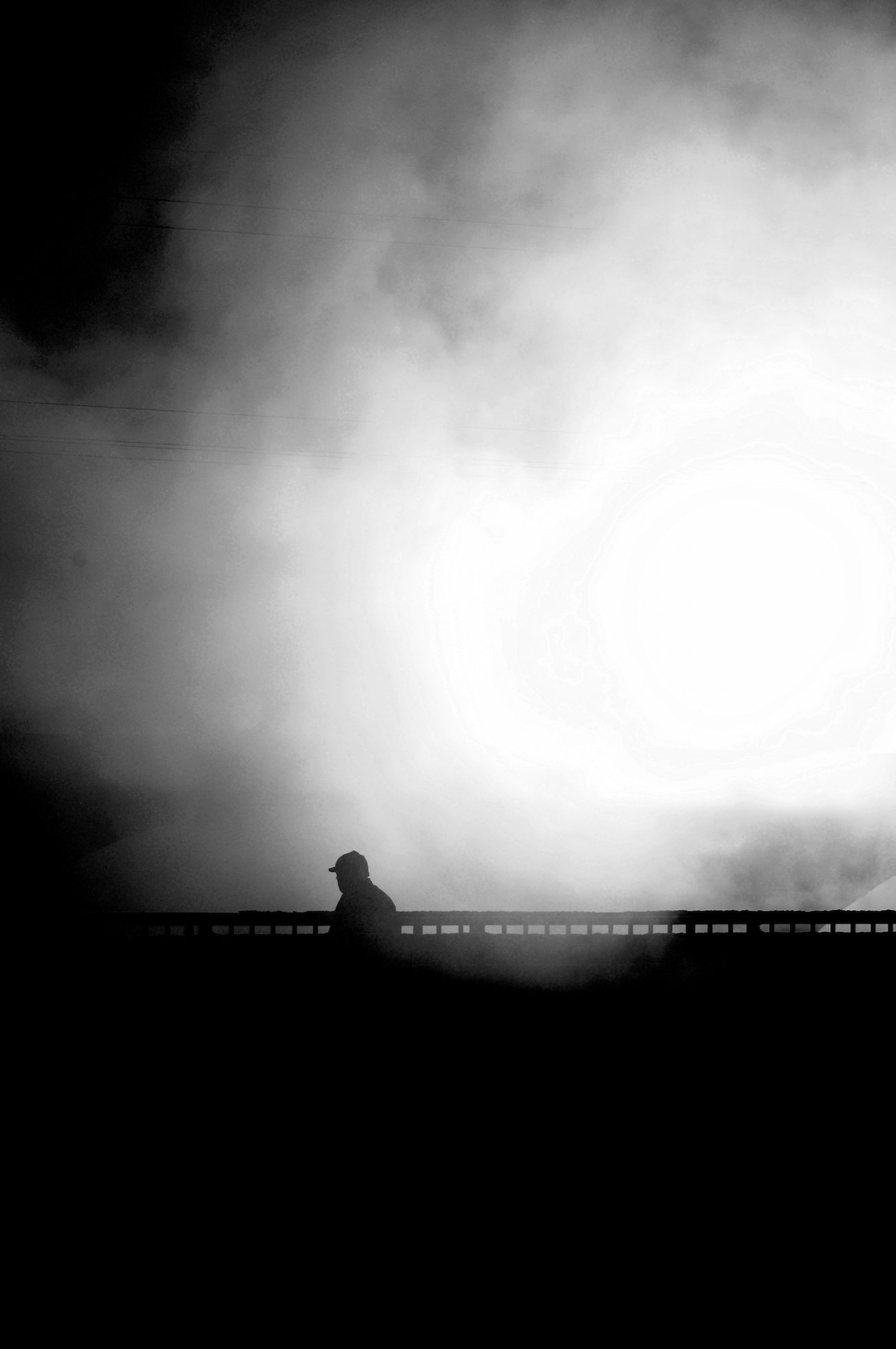Sun seeped through fog that Friday morning, turning all the windows bright gray. I lay in bed, knowing that David, my stepdaughter’s husband, was dying, wondering if he had passed while I was asleep, and considering my hands. Petting one of my cats, I watched my left hand as if it were a separate animal, studied the dry, finely lined skin, the blue ridges of ropy veins. I imagined the bone buried in each finger, my wedding band slipping off but for the thickness of that temporary, flawed skin. These hands will die.
The phone rang. Reaching for it, I began to cry.
David had died before dawn, around 6:45, family gathered by his side. He’d been unconscious a long time, but they kept touching him. He seemed to know he wasn’t alone. People were talking to him, just in case, voices in conversation, then prayer.
I fell back into my pillow. Both cats walked on me, paws kneading my ribs. One yowled for breakfast; the other purred — such a politician. Then they curled between my knees and ankles. Eyes closed, I listened to their fast cat breathing and conjured the details of David’s hands, which were always fussing with something — cigarette, T-shirt hem, cat or dog hair plucked from the upholstered arm of a chair. I could hear his voice, the exact way he spoke my name, and the childlike, high-pitched timbre it had after a few glasses of wine. His face was harder to bring into focus: Full, round cheeks flowed down into a thick neck. Dime-store reading glasses sat on his bare scalp. Thin, pale lips curled into a smile. A creasing at the edges of his eyes. For a while he’d worn a stud, the glassy stone flashing at his earlobe.
When I thought of his eyes, I couldn’t remember: Were they brown or blue? Green or hazel? I panicked. How can I not know the color of his eyes? I leapt from bed and thumped through the house. I needed a photo of David. They’re blue. I’m sure they’re blue. The cats hunched under the dining-room table, blinking at my harried movements. Actually they’re more hazel, aren’t they? Hazel. Has to be hazel. I opened dresser drawers, kitchen drawers, bathroom drawers, the shallow drawer in the wine rack. Why am I looking here? I felt stupid and self-absorbed, then swore that I wasn’t stupid and self-absorbed.
Finally I slumped in a chair and sobbed. To grieve one death is always to grieve two. Impolite to admit, I may have been weeping mostly for myself. When I looked up, the room a little murky through my tears, there it was: the Christmas photo that had never been put in an album. David and his wife, Suzy, stared at me from the counter by the phone, grinning. David, you have brown eyes! Had brown eyes. I’m sorry I couldn’t remember your eyes. I do now.
David had just turned sixty-one three days earlier, his only birthday gift the graceful drip of morphine. When he’d first arrived at the hospital, everyone had thought, Pneumonia, but, surprise, David’s lung on the X-ray was a gray purse with one large coin. The cancer was thriving elsewhere, too. There was pain, as I suppose there should be when one is literally being eaten alive.
Two days later, traveling on business, I felt David’s spirit with me as I drove out of the long shadows of redwood-covered mountains into the open, rolling terrain of Mendocino’s oaks, then the vineyards, and finally the slow shuffle of Bay Area traffic. The world, wherever I looked, was unexpectedly beautiful. I drove through miles of grapevines, their leaves bright flames, letting loose their wild colors. Galileo said, “Wine is light, held together by water.” So are people, I thought. In the surreal yellows, oranges, and magentas of the vineyards was where I felt David with me the most. He’d worked for Korbel Winery for years, married Suzy in view of waiting winter vines. The landscape hummed, and I hummed, too, because I remembered that I could.
David had once told me a story about how he’d fallen asleep at a neighbor’s house: stayed too long, drunk too much. When he woke, he was in his own bed, and, lifting his hands to rub his eyes, he discovered his palms were caked with dirt. He remembered dreaming of being a dog, and he wondered if he had crawled home through the row of foxgloves in the dark.
This story sprang into my head when I stopped by Suzy’s home to offer my help with David’s memorial. I thought of his dreaming he was a dog. It seemed a happy sort of dream. When I arrived, it was twilight, and the earth near his front door was wet and disturbed. The porch light was on, casting a yellow glow on the stoop. I pressed my hand into the mud, leaving a trace of my visit. Then I opened and closed my hand a few times, gawking at the mud in my palm. I could see my lifeline cutting though the earth’s stain.





